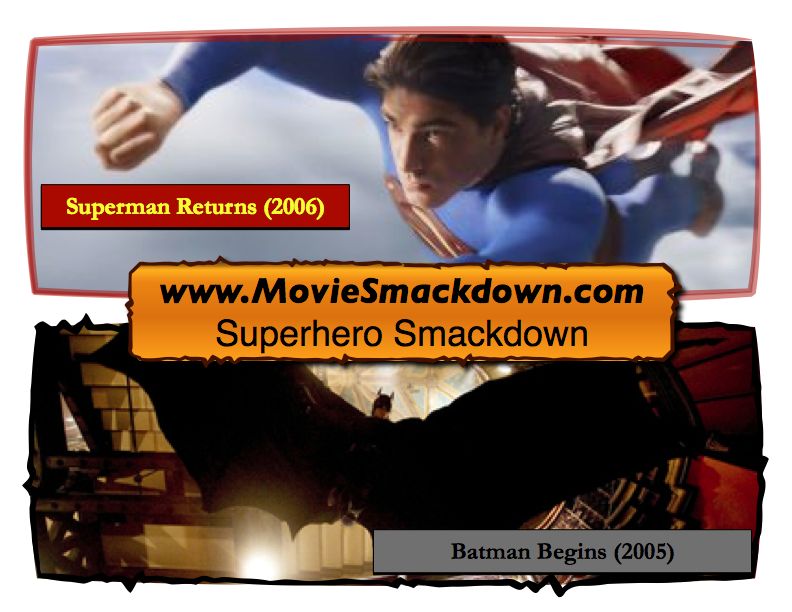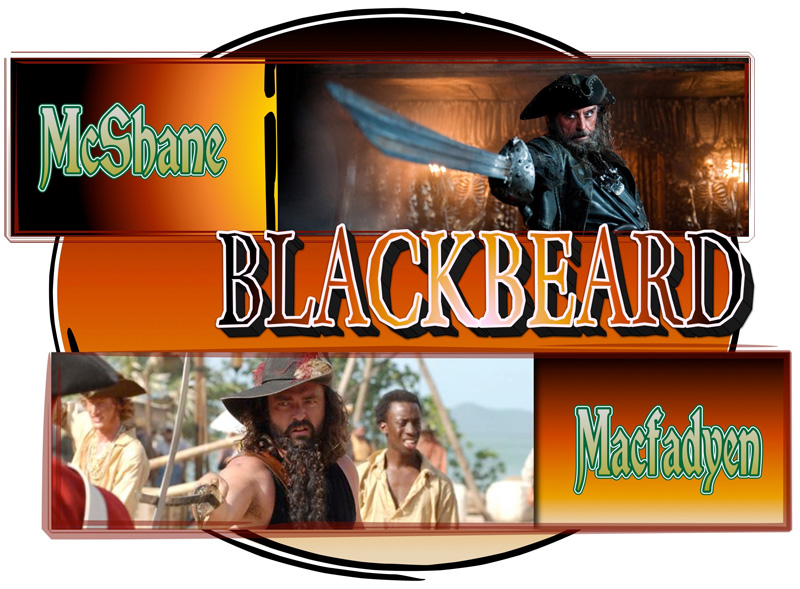 The Smackdown
The Smackdown
Reboots.  A familiar frontier. These are the voyages of the Hollywood business. Now if only I could go reboot the time I bested too many Jager shots and woke up at the campus bus stop twenty minutes before a Physics midterm. Now, it’s easy to groan when Hollywood reboots yet another franchise.  Batman.  Hulk.  James Bond.  The list goes on.  Up this year is Star Trek, one of television’s most enduring franchises, spawning spin-offs, films, video games, and Trekkies. With such a long history and devote fan base, it’s scary to think what a reboot could mean for a franchise most believe reached its prime with Star Trek II: The Wrath of Khan. Nevertheless, we boldly go tonight where no smackdown has gone before, with Star Trek II: The Wrath of Khan locking phasers and photons with the reboot simply titled Star Trek.
[singlepic id=176 w=320 h=240 float=right]
The Challenger
Facing down gospels of Star Trek canon, J.J. Abrams reintroduces the original crew of the USS Enterprise in their fledgling years at Starfleet Academy, centering the film around an arrogant and willful James T. Kirk and an emotionally-conflicted Spock.  But there’s not much time for learning with these Starfleet cadets as a Romulan mining ship arrives from the future (of course, it’s Star Trek) hellbent on revenge, thus demanding an emergency response from The Federation. Star Trek benefits from the advances of modern technology and offers a visually-arresting action film.  In keeping with Abrams trademark storytelling, the film grinds its legendary characters through unrelenting plot twists, revelations, and reversals.  A faithful adaptation of a franchise mixed with a little bit of Apple, Star Trek is a summer blockbuster with the thrills and chills to please fans and newcomers alike.
[singlepic id=59 w=320 h=240 float=right]
The Defending Champion
Star Trek II: The Wrath of Khan is all about the revenge of Khan, a genetically-enhanced meglomaniac exiled on a vacant planet by Captain Kirk due to his mutiny aboard Kirk’s ship. Â Vowing a revenge best served cold, Khan hijacks another Federation vessel and seeks Kirk out for a final cosmic duel. Â But Admiral Kirk is not who he once was when he and Khan fought years ago, having aged and lost a little energy, leaving him to wonder if he has what it takes to best a man he barely defeated at his prime. Â Watching an underdog Kirk match wits with Khan, one of film’s greatest villains, provides a strong backbone for this film. Â And the sincere character relationships pay off when the film climaxes in the death of the series most beloved character. Â Full of heart and action, it’s easy to see this is claimed to be the best Star Trek of all time.
The Scorecard
When comparing these two films, its easy to simply be distracted and overwhelmed by the shiny new visuals in Star Trek over the more subdued and dated visuals in Star Trek II. Star Trek is clearly the better-looking film, with special-FXs superior to any of those in previous iterations.  But when comparing these films, you have to start with the characters for the characters have always been at the core of the franchise.  Yes, Star Trek creator Gene Rodenberry presented an interesting philisophical idea with of an egalitarian society of space-faring planets who seek to explore the universe. Earth is beyond war and prejudice and now simply…explores.  But it has always been the characters that make such a far-fetched world one we believe in because we love the characters that exist within it.
Star Trek II: The Wrath of Khan is a great character piece.  William Shatner plays it a bit off with Kirk since the story asks that Kirk lose some of his trademark confidence due to his fear of aging.  Kirk is no longer the rambunctious captain of daring-do; he is now a more paced individual, slowly losing the spark that made him such a great captain.  It is the arrival of Khan, and his connection to Kirk’s youth, that reignites Kirk’s vigor and forces him to rise to the challenge.  For this reason, Khan is really the centerpiece of this film.  A simple yet compelling villain, Khan’s blind and ridiculously over-the-top hatred of Kirk is the fuel this film burns as it races towards its conclusion. Just as arrogant and destructive as Kirk was arrogant and effective, Khan is a villain defeated only when the USS Enterprise sacrifices one of its most beloved officers, Spock, to save Kirk and his crew.  He is a mirror of Kirk and makes Kirk’s character all the more interesting as any good villain does.
Add to  this the sense of danger in Star Trek II: The Wrath of Khan.  For a Star Trek film, this movie had an unusual focus on death.  A youthful crew member is introduced in the film’s opening moments only to serve later as an illustration of life’s fragility after Khan cripples the Enterprise.  From the get go, the Enterprise loses most of its fighting ability, making it a stranded duck in treacherous waters teeming with a viscous predator.  It’s wonderful tension, and the situation’s desperation only further adds to Kirk rising to the occasion not only as a captain, but as a man reclaiming his youth.
Star Trek can be found lacking in terms of a villain. Captain Nero is a Romulan miner from the future, circa the last Star Trek movie, Star Trek: Nemesis–which was a Star Trek: The Next Generation film.  The audience is lead to believe, if one follows such things, that following Star Trek: Nemesis, Romulus was destroyed by a supernova The Federation could have prevented. The supernova threw Nero and his mining ship back through time where he now seeks to destroy The Federation, including a familiar Star Trek mainstay who came back with him.  A simple revenge story villain, not unlike Khan–just not as compelling or relevant. Yet what appears to be a terrible oversight in creating a compelling villian soon reveals itself as a purposeful choice. A choice that pushes Star Trek above and beyond anything Star Trek II: The Wrath of Khan could hope to achieve.
I know, I know. Â How can I say this? Â Put your phasers down, Trekkies…or at least set them to stun until I finish. Â But before I go on, beware: spoilers ahead! (sorry, J.J.)Â
Due to the lack of a major theatrical villain like Khan, Star Trek forces the audience to focus on the major protagonists that have made the series so successful: mainly, James T. Kirk and Spock. Star Trek is essentially a story about friendship and how unlikely friendships can be forged from trying circumstances–friendships that can change lives and–in this case–save worlds. Spock hates Kirk. Kirk hates Spock. This animosity ignites since it threatens the ability of Kirk and Spock to stop Nero and save Earth, making this legendary friendship the key to saving the day.  Abrams and Co. knew a reboot could succeed only by soaring above all other Star Trek movies and to do this the formula must change.  Instead of the usual villain-centric situational story, Star Trek makes Kirk and Spock interesting in and of themselves–no Khan, Borg, or Q to do the job for them.  What’s fantastically innovative about Star Trek is that Kirk and Spock are each other’s “villains”, with natures and desires clashing with intensity and stakes.
And boy are there stakes!  At first, knowing its a reboot, we presume to know how it ends.  After all, if Kirk must fight lizard monsters in Episode 34 of the original series, he can’t die in this film.  Even when things go big, you still think you know how it’ll end.  For example, one of Star Trek’s major plot point occurs when Spock’s homeworld, Vulcan, is destroyed by a blackhole.  Anyone familiar with the series knows how influential and important Vulcan has been to the series–that it was NEVER DESTORYED–and to see Abrams and Co. destroy it is quite shocking. However since Nero’s from the future and we us some got time travel kicking, we assume all will be righted by the end.
Wrong!
Full of twists and turns, Star Trek’s most effective twist is on the audience itself when we realizethe film is in fact not a reboot at all!  In a clever use of a Star Trek staples, Abrams and Co. use the time-traveling Nero and his actions in the past as a means to justify breaks in the canon-gospel of Star Trek.  Instead of revamping the series from the outside, Abrams revamps the series from the inside via Nero.  Nero’s actions in the past have produced an alternate version of the original series’ timeline.  Not just a clever plot device, the idea is storytelling genius as it allows the reboot to have drama and suspense–unlike many other prequels and reboots. The fact that Spock saves Kirk in Star Trek IV does not preclude him from dying in this film…or any of its sequels.  This makes this film such a thrill as Kirk, Spock, Scotty, McCoy, or the Enterprise herself could be snuffed out of this alternate history at any moment.  Stakes…wonderful things and its lovely to have them back in such a typically “safe” series such as Star Trek.
With world-shattering stakes in order and sympathetic characters in the balance, it’s no wonder Star Trek provides some of the best emotional moments in the series’ history.  Every scene with Kirk and Spock sells, and sells with great class. Traditionally overlooked characters like Uhuru and Sulu earn great moments  so that even when the Enterprise finds herself without Spock or Kirk we still thrill at the crew’s success in taking on Nero. The film’s climax is a great example of this, as crew come together across space toward a common goal and form the legendary Enterprise NCC-1701 family.
Granted now, Star Trek does have the sentiment of the established series to help produce these great emotional moments–especially the film’s opening and the messianic birth of James Kirk (yes, I cried). Â However, in fairness, so did Star Trek II, which wisely used the television series to reclaim a villain with emotional resonance to an aging Kirk’s struggle. Â The difference is that Star Trek II brought back a villain; Star Trek brought back our heroes.
And how they are brought back!  Chris Pine is Captain Kirk, breaking Shatner’s caricatured portrayal and making Kirk as a character better for it.  The script focuses on Kirk’s rise to power, and how his arrogance  can be channeled into something living up to his legendary father’s ghost. It’s not a “Kirk must learn to be humble.”  It’s Kirk “must be a bad ass but just has to point it in the right direction.”  On the flipside, Zachary Quintos holds his own and then some as Spock, benefiting as well from th
e script’s nuanced and rather bold revision of his character. Â Spock no longer whines about his human half; he acts it and deals with it on screen. Â We appreciate this because his struggle with it has a direct impact on the stakes of the film.
Also to be commended is the visual style of Star Trek.  Abrams and his team have done something unique and special here.  Visually, a Star Trek movie has never seemed so familiar and yet so engaging, with bright colors and visual flares to seduce the eyes.  The USS Enterprise has never looked better; a gorgeous vessel blushing with the illuminance of stars and nebulae.  What’s great is also the Enterprise bridge, which embraces the sparsity of the original series and yet modernizes without losing the design spirit of the original series.  I also love how they maintained the beeps and tweaks of the original series.
The Decision
Star Trek II: The Wrath of Khan let our heroes shine against a deadly villain, providing a high point for the series. Star Trek is wise enough to just let our heroes shine as they grow into better-realized characters, using a great script to move and thrill us–not just a villain. Star Trek II: The Wrath of Khan drifts on its thrusters in standard orbit; Star Trek warps ahead into unpredictable territory for one of sci-fi’s beloved franchises.




The 2009 reboot is the more cinematic experience, but Khan has a better script and better characterizations so is ultimately a better film. Tellingly, Nero is no Khan. Ricardo Montalban is perhaps the best human villain in any science fiction movie or TV series.
That said, all the movies are a pale reflection of the TV series where Trek works best. Of all the Trek series, Voyager reigns supreme – http://www.rogerebert.com/balder-and-dash/now-voyager-the-least-beloved-star-trek-offered-some-of-the-franchises-strongest-feminist-messages
Great review of a great movie; keep on keeping on, and don’t mind the haters, they just want Star Trek to be stuck in the past as a media franchise.
I Love Star Trek. & Lost in Space. Thank yu,MS.Frances Yozawitz
Star Trek 2009 was and is an abomination, comparable in its awfulness only to ST V, Generations, Insurrection, and Nemesis.
A pathetic villain without any sort of depth, a retarded plot full of holes and deus ex machina, unlikeable main characters, shoddy physics and too much lensflares.
Spock is an arrogant arse, Kirk is an arrogant arse, Chekov is a bumbling fool, and Uhura is a slut. They have turned the characters into laughable charicatures.
In Khan, Kirk told us that he reprogrammed the Kobayashi Maru because he does not believe in a no win scenario.
In 2009, he is simply an arsehole, sitting in the chair, grinning and eating an apple.
As for the deus ex machina: Kirk is dumped on an ice planet on which Old Spock JUST HAPPENS to be, then he finds the tiny cave on the whole planet where Spock JUST HAPPENS to be, then they find Scotty, who JUST HAPPENS to be on that planet too, and he JUST HAPPENS to have the technology to beam directly onto a ship that is not only moving at warp speed, but also already lightyears away.
Comparing this turd to the Wrath of Khan, the very best movie in the entire franchise by lightyears, is frankly insulting.
and another thing, Nero is one tough Bad (censored) compared to Khan, Nero is tatooed, and bald, while Khan may have super strengh, but looks like a crazy old woman with that long white hair.
I really Enjoyed the new Star Trek, it was way more entertaining than the Star Wars Prequels. It has better acting, The Story was amazing, and the Special Effects are 100% better. and Leonard Nimoy is the only Star Trek Original Series Actor to appear in the new movie. And Wrath of Khan is my second fave, since i’m new to trek. They’re both Awesome. Oh Yeah!
NO! Shatner was, is, and always shall be Captain Kirk. They simply do not produce men like him anymore, and the world is sorrier for it.
Can you imagine a Capt. Kirk without the occasional random pause mid-sentence? Or somehow having makeup in his quarters? Or giving Spock fifty-gazillion once-overs…in the same scene? Crossing his legs in the Chair? Having a certain inability to not flirt with anything that moves and is attractive?
I thought not.
Not to say Pine doesn’t make a good Kirk, he does, but you simply can’t say that the character changes make Kirk better. It’s not even the same character really; his life is changed completely by Nero’s time travel; we don’t even know if the tragedy on Tarsus IV occurred in this new universe! Different and modern don’t immediately make a character “better.”
Oh, and, by the way, Spock never “whined” about his human half in TOS. Before you make a generalization, make sure you know what you’re talking about. In TMP, Spock totally and completely accepts himself, his human side, and his rather ambiguous “simple feeling” for Kirk.
Both are far deeper characters than people give them credit for.
The actors in the original were puffy old guys. The latest version is fresh and new and young.
“I don’t like sci-fi” my husband told me. He had a choice, sit home and endure the 2 hour church bell practice on a Tuesday night or see “Star Trek.” I was a fan since the 60s and the story transported me. Believe it or not, my husband said it ripped a hole through time and space !
STAR TREK is the closest thing to a perfect sci-fi film that I’ve seen in years.
Wrath of Kahn is now the second best Trek film ever. Abrams’ genuis storytelling makes his reboot an amazing cinematic event. Loved it loved it loved it!!!!!
I’m off to see Star Trek next week, and this review just made me want to see it sooner!!! I am so glad this film has an appeal to non-Trek fans as well, so my wife might just be able to enjoy it with me, rather than have to sit through something she’d rather not. Great review, and I’ll send you my thoughts later!
Can’t argue with your result, Beau. Aside from a few minor quibbles — like Kirk’s plans hinging on avoiding death by clinging to the side of scary heights by his fingertips on three separate occasions — this is truly Star Trek the way it’s meant to be experienced. Chris Pine was phenomenal in the role, BTW, and the casting in general was outstanding. I remember “Khan” fondly but re-living it through your review I realize that it still had that bloated Shatner feel to it when it needed to be liberated. Roles like James T. Kirk and Bruce Wayne and James Bond are iconic roles that are not owned by single actors but can be enjoyed through their continual re-creation. So here’s to Pine & Co. taking us on more adventures in the years to come.
Great review. I agree 100%. Star Trek is storytelling genius, a reboot for a franchise that maintains continuity but simultaneously allows for an infinite number of new possibilities for its characters.
I was never a Trekkie, let alone a real fan.
Star Trek has earned a new admirer and it owes Abrams and all the other “Lost” boys for it.